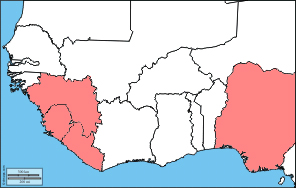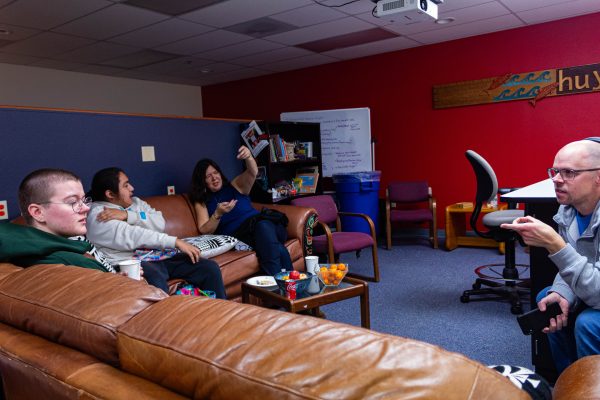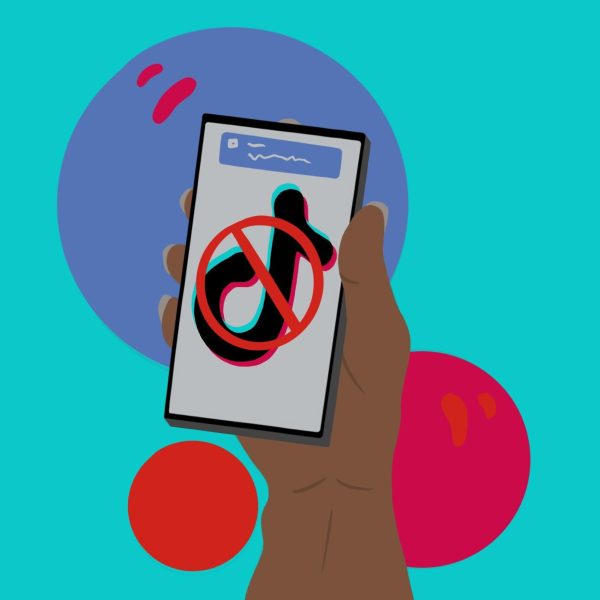Six Things You Should Know About Ebola
The Ebola Virus has been around for decades, but this recent outbreak has brought it a little closer to home. Traditionally, Ebola outbreaks occur in Africa, with West Africa suffering the most cases in this current epidemic. With a few confirmed cases in the states, thankfully our community is well prepared to stop it from spreading. Though the United States is capable from stopping the virus from getting out of hand, the stories, news updates and sometimes rumors are surrounding us. Here are six things students should know:
1. What is the Ebola Virus?
Kathy Watson, Associate Dean of Nursing at EvCC, says that Ebola is a “viral disease, it sort of fits into the blood borne pathogen category because it’s carried by blood and body fluids. It’s not like an airborne disease.” This means Ebola is contracted when body fluids of an infected person come in direct contact with an opening in the skin.
The Center for Disease Control says that body fluids “include but are not limited to urine, saliva, sweat, feces, vomit, breast milk and semen.” The most common symptoms of Ebola include fever, fatigue, vomiting, diarrhea and loss of appetite. According to the CDC, “patients with fatal disease develop more clinical signs early during infection and die between days 6-16 of complications.”
2. Where did it Originate?
What would soon become the 2014 Ebola Outbreak started with the death of a toddler in Guinea, last December. According to BBC News, it then spread to Liberia, Sierra Leone and Nigeria. Cases of Ebola have also been reported in the Democratic Republic of Congo, but are said to be unrelated. A man coming from Liberia to Texas was the first confirmed case in the United States. According to the New York Times, six people total have contracted Ebola in West Africa and received treatment in the United States. No Ebola cases have been suspected or confirmed in Washington State.
3. It is Not a Joke.
Someone coughs, leading to bystanders making an Ebola joke or comment. Although comic relief is a great way to relieve stress, especially around mid-terms, the Ebola virus already has “over 8,000 cases” according to Group Health. The CDC calls this epidemic the “largest in history.” Currently there is no available vaccine, although some are under development. Even if there are no cases locally, this Ebola epidemic breaks the historical record for most cases, and that‘s significant. Third quarter nursing student Ty Schallenberger isn’t scared, but admitted, “I don’t think [people are] taking it serious enough.”
4. EvCC’s response to Ebola.
Information about Ebola will not be integrated into EvCC’s nursing program, but Watson says that “we’re putting information out there for students. …It hasn’t been integrated into the curriculum per say… but certainly transmissible diseases are part of what we have in our curriculum.” Resources and fact sheets exclusively about Ebola are available for students through the Washington State Nurses Association, the American Association of Colleges of Nursing, and the CDC.
5. We are Prepared.
All the hype surrounding this infectious disease has many worried and fearing the worst. Fortunately, Everett has technologically advanced hospitals and medical clinics. Medical Assistant Deanna McAllister, who got her medical training from EvCC, says, “I do feel like I am well trained with universal precautions that should be taken by healthcare workers who are dealing with any infectious disease.” Current EvCC nursing student Nikky D. is confident we have the resources to combat it. Everett Clinic says it is currently “updating infectious disease training for our staff. [Their] role is infection control and prevention.” They are also closely working with Providence.

6. Don’t believe everything you hear.
While there have been reports of Washington State residents monitored for Ebola symptoms after traveling to West Africa, no one in our state has been diagnosed with the virus. Harborview Medical Center and Providence Regional Medical Center in Everett are preparing to take potential Ebola patients, although Harborview says that “the risk of an outbreak is considered very low.” When hearing a rumor that a person has been infected with the virus, make sure information is supported by a reliable source.
Ebola is a viral disease that is spread through direct contact of body fluids from a person who is already infected. Although the disease is very serious and has taken a life in our country, students at EvCC are very unlikely to see the virus in our community. If Ebola ever was to come to our region, rest assured that Washington has the resources to combat the deadly disease.
Sources: BBC News, CDC, The Everett Clinic, Group Health

How did you get here?
I took Journalism 101 in spring 2014, and realized that I was interested in pursuing it as a career. Andrew became my advisor,...

How did you get here?
I got to the clipper because I love photography and was looking into way s to continue to do it after traveling around the...





